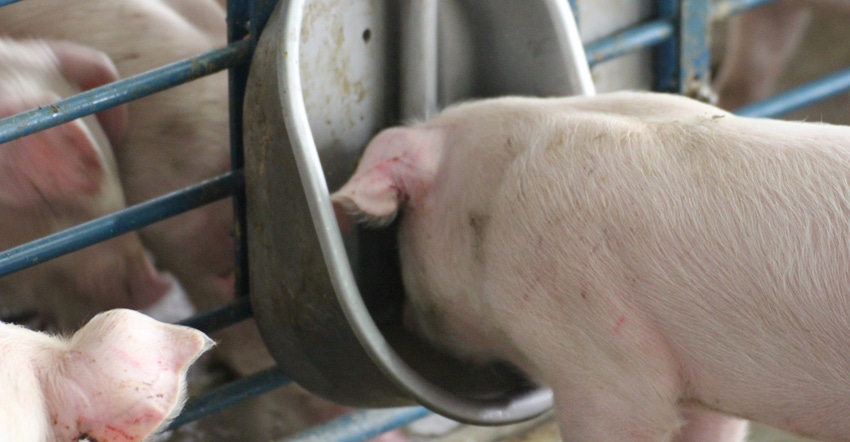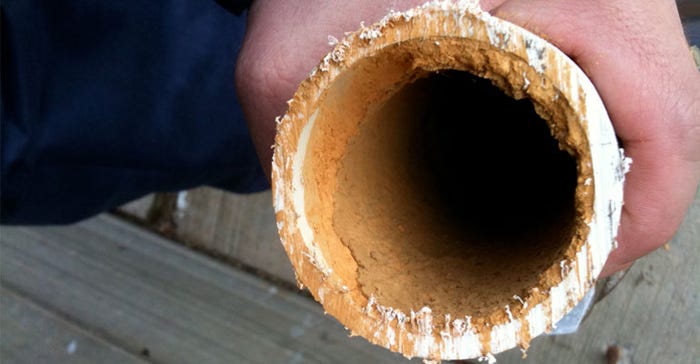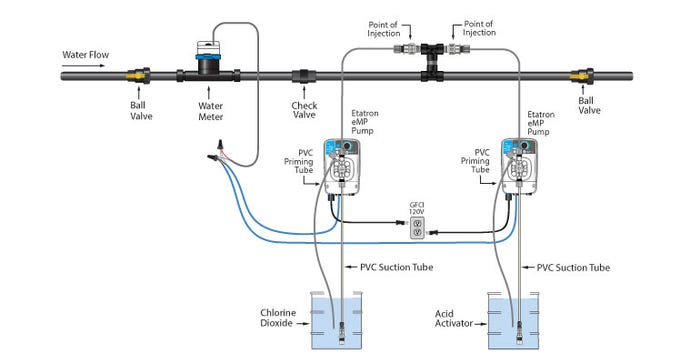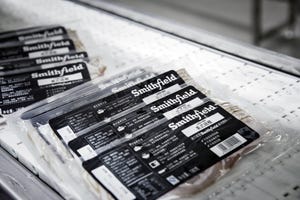Chlorine dioxide may be more effective than chlorination when treating water of varying quality and changing pH levels.
February 28, 2018

Sponsored Content
Treating water with chlorine (bleach) is a common method used to sanitize livestock drinking water and reduce concentrations of water-borne pathogens such as bacteria, viruses, molds, and protozoans. However, the effectiveness of chlorine is dependent on water quality and pH. Chlorine tends to bind itself to any organic material in the water reducing its potency. Chorine is also less effective if the water pH is higher than 7.0.
Chlorine dioxide is a similar sounding chemical also used for treating drinking water. Chlorine dioxide has several advantages over chlorine.
1) Chlorine dioxide is faster acting than chlorine especially if the water pH rises.
2) Chlorine dioxide is a more effective sanitizer in poorer quality water containing higher levels of organic matter and other dissolved solids.
3) Chlorine dioxide effectively operates in a broader range of pH levels (4 to 10).
4) Chlorine dioxide can penetrate the bioslime build-up inside water lines and effectively remove it from the water system. Chlorine dioxide has 2.6 times the oxidative power of chloride bleach.

In its pure form, chlorine dioxide is an unstable gas that is difficult to transport safely. For this reason, it is sold as a stabilized liquid. Stabilized chlorine dioxide is activated on site by injecting it, along with a blended acid, into the water line. This mixing occurs in a closed system (the water line) and safely generates chlorine dioxide gas.

Installing a dosing system to inject the chlorine dioxide and activator chemical is relatively straightforward. Reliable electric metering pumps can pull the stabilized dioxide and the activation chemical directly from their containers. The products can be injected directly into the water line or as an alternative, into a small reaction tee. This closed system ensures the consistency of the treatment, the safety of the producer, and extends the life of the applicators.
Recent restrictions on the use of medications in livestock production have made it even more important than ever to provide livestock with clean, high-quality drinking water.
About the Author(s)
You May Also Like


